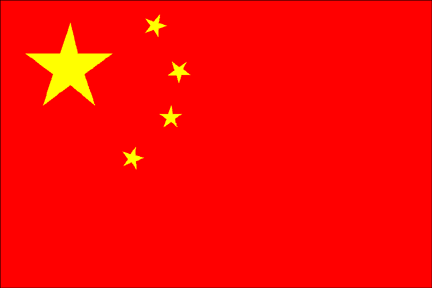Index | Search |






The Second Department oversees military human intelligence (HUMINT) collection, widely exploits open source materials, fuses HUMINT, signals intelligence (SIGINT), and imagery intelligence data, and disseminates finished intelligence products to the CMC and other consumers. Preliminary fusion is carried out by the Second Department�s Analysis Bureau which mans the National Watch Center, the focal point for national-level indications and warning. In-depth analysis is carried out by regional bureaus.
Although traditionally the Second Department of the General Staff Department was responsible for military intelligence, it is beginning to increasingly focus on scientific and technological intelligence in the military field, following the example of Russian agencies in stepping up the work of collecting scientific and technological information from the West.
The research institute under the Second Department of the General Staff Headquarters is publicly known as the Institute for International Strategic Studies; its internal classified publication MOVEMENTS OF FOREIGN ARMIES [WAI JUN DONGTAI] is published every 10 days and transmitted to units at the division level.
The PLA Institute of International Relations at Nanjing comes under the Second Department of the General Staff Department and is responsible for training military attaches, assistant military attaches and associate military attaches as well as secret agents to be posted abroad. It also supplies officers to the military intelligence sections of various military regions and group armies. The Institute was formed from the PLA "793" Foreign Language Institute, which moved from Zhangjiakou after the Cultural Revolution and split into two institutions at Luoyang and Nanjing.
The Institute of International Relations was known in the 1950s as the School for Foreign Language Cadres of the Central Military Commission, with the current name being used since 1964. The training of intelligence personnel is one of several activities at the Institute. While all graduates of the Moscow Institute of International Relations were employed by the KGB, only some graduates of the Beijing Institute of International Relations are employed by the Ministry State Security. The former Institute of International Relations, since been renamed the Foreign Affairs College, is under the administration of the Ministry of Foreign Affairs and is not involved in secret service work. The former Central Military Commission foreign language school had foreign faculty members who were either Communist Party sympathizers or were members of foreign communist parties. But the present Institute of International Relations does not hire foreign teachers, to avoid the danger that its students might be recognized when are sent abroad as clandestine agents.
Those engaged in professional work in military academies under the Second Department of the PLA General Staff Headquarters usually have a chance to go abroad, either for advanced studies or as military officers working in the military attache's office of Chinese embassies in foreign countries. People working in the military attache's office of embassies are usually engaged in collecting military information under the cover of "military diplomacy". As long as they refrain from directly subversive activities, they are considered as well-behaved "military diplomats."
Some bureaus under the Second Department which are responsible for espionage in different regions, of which the First Bureau is responsible for collecting information on Taiwan and Hong Kong. Agents are dispatched by the Second Department to companies in Hong Kong like the China Resources Group. In addition, the military also dispatches agents to the Everbright Group, Bank of China Group, and other local corporations to gain cover.
The "Autumn Orchid" intelligence group assigned to Hong Kong and Macao in the mid-1980s mostly operates in the mass media, political, industrial, commercial, and religious circles, as well as in universities and colleges. The "Autumn Orchid" intelligence group is mainly responsible for the following three tasks:
